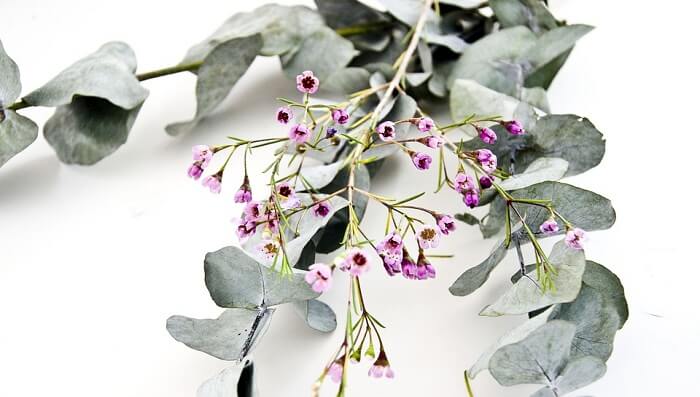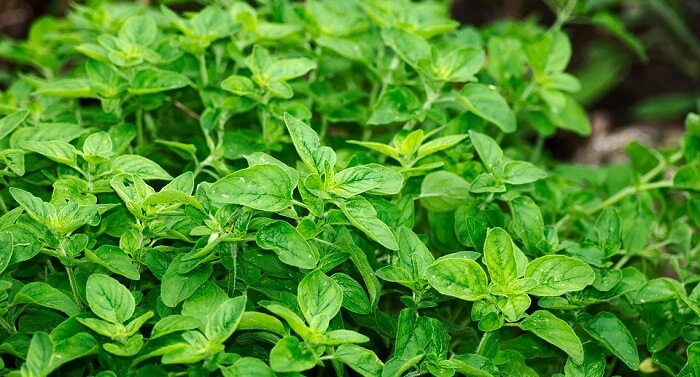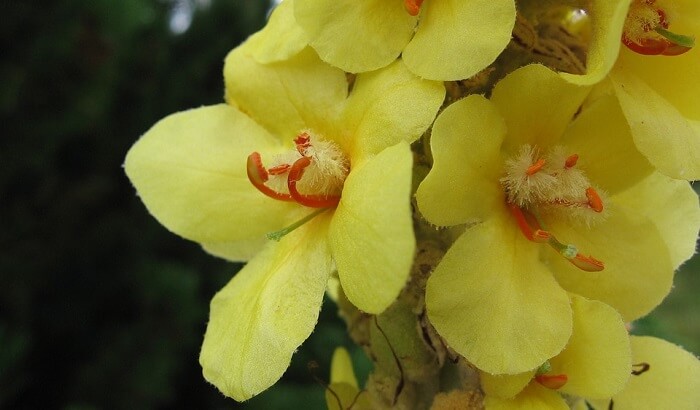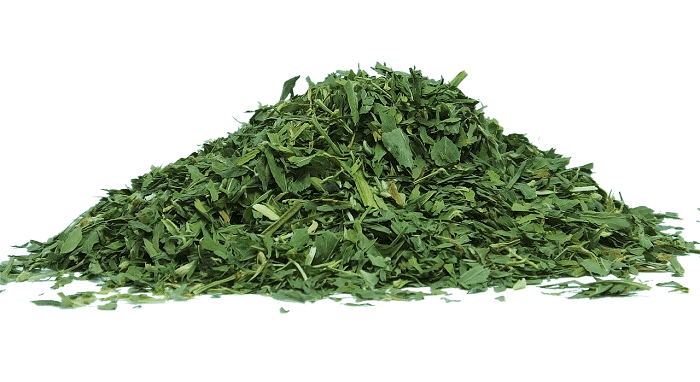There are numerous herbs that are beneficial for supporting lung health. And from helping with asthma to fighting off respiratory illness, breaking up phlegm, or even fighting inflammation, there are many ways that these herbs can greatly benefit the lungs.
Ways to use herbs for lung health
Interestingly, each individual herb has a vast number of unique compounds that make it useful for numerous health issues. In order to experience all the therapeutic properties of an individual herb, it’s ideal to consume the herb in its entirety, when feasible. However, that’s not always possible and the truth is, the beneficial properties of herbs can be utilized in many different ways. A few of those ways include:
- Culinary – Some of the herbs can be added to food. This is a fantastic and simple way to utilize the whole herb and its benefits.
- Tea – A simple tea can be made by steeping fresh or dried plant material in a cup of water. It’s a great way to consume more liquids and simultaneously experience the therapeutic properties of the herb.
- Decoction – In a decoction, the plant material is boiled for several minutes, resulting in a more potent finished product.
- Extract – Extracts are made by soaking plant material in a solvent for longer periods of time. They are more concentrated than a tea or decoction, but not as concentrated as an essential oil. They can easily be found online, in natural health food stores, or made at home.
- Essential oil – Essential oils are highly concentrated volatile oils that are extracted from different parts of each plant. Large amounts of plant matter are used to make a very small amount of essential oil, and very little is needed when using them.
Herbs for lung health
Although there are many herbs that are beneficial for lung health, I have chosen to include the following herbs for a few reasons. First, each herb has potent therapeutic properties that are effective for supporting lung health. Additionally, each of the herbs included is simple to use. There are no complicated formulations that need to be made to utilize their benefits. Finally, each of these herbs is generally considered safe to use in moderation. All of these reasons and more are why the herbs listed below are considered 8 of the best herbs for lung health.
1. Eucalyptus

It should come as no surprise to see that eucalyptus is one of the best herbs for lung health. It has long been used as a remedy to treat multiple health issues and to support the lungs. Originally native to Australia, eucalyptus trees are now grown all over the world. There are many different species of eucalyptus, and some species can grow almost 500 feet tall.1 The leaves contain potent volatile oils and are the part of the tree that is used medicinally. Eucalyptus is a versatile and effective herb that has many therapeutic properties that help with a wide range of health issues.
The main constituent of the eucalyptus leaf is 1, 8-cineole.2 Similar to other plants that contain this compound, eucalyptus is commonly used for coughs, colds, asthma, bronchitis, respiratory issues, and more. It’s effective at breaking up congestion, helps with inflammation, and the essential oil is even considered beneficial in stimulating the immune system.3
There are many ways to use eucalyptus to support lung health. The dried leaves can be consumed as a tea or made into an extract, or they can even be made into a decoction and the steam inhaled. Eucalyptus essential oil is also beneficial for supporting lung health and can be diffused and inhaled or even used in homemade preparations such as salves, balms, and personalized aroma blends.
2. Thyme
Thyme is another fantastic herb that supports lung health, and it can easily be grown in your own backyard. Although often used for culinary purposes, thyme is actually a potent medicinal herb with many therapeutic properties and uses. The thyme plant is a member of the mint family and is fairly small, only growing a foot or two high.4 The tiny aromatic leaves are what we use to flavor our food, and the aerial parts are all used to make the essential oils.5
Thyme has many uses, but specifically for lung health it is considered beneficial for coughs, colds, respiratory issues, bronchitis, promoting breathing, and breaking up phlegm—to name just a few. It’s also thought to strengthen the lungs.6
There are many ways to use thyme to benefit lung health. One of the simplest ways is to add it liberally to your food. However, it can also be made into a tea, extract, decoction, or the essential oil can be used as well. Personally, I like to make a simple thyme syrup to help with respiratory illnesses during cold and flu season. Simply decoct some of the dried herb and add some honey and fresh squeezed lemon juice to it.
3. Oregano

Oregano is another herb that is commonly used to season food, but also happens to be a great choice for lung health as well. Like thyme, it is a member of the mint family and shares many of the same therapeutic properties that other members of the mint family possess. Oregano can grow 1-2 feet tall and can easily be planted in your own garden.7
Oregano is a potent antiseptic with antibacterial, antiviral, and antifungal properties. This is why it is often used to treat and fight off infection.8 However, it’s also useful for respiratory issues, coughs, colds, and clearing the bronchial passages and lungs.9 Additionally, it’s a potent antioxidant and is considered useful for fighting inflammation.
To support lung health, oregano can be consumed or its spicy aroma can be inhaled. It can be added liberally to food, taken as a tea or extract, or the essential oil can be diffused.
4. Peppermint
As another member of the mint family, peppermint is actually a hybrid of spearmint and water mint.10 It has been used for centuries not only as an effective remedy for multiple digestive issues, but for respiratory issues as well. The peppermint plant can get 2-3 feet tall and can also be easily grown in a garden. However, because it is invasive, it can quickly take over an area if not regularly pruned.
Peppermint contains many therapeutic properties, including antioxidant, antibacterial, and antifungal properties. Its main constituent is menthol, which accounts for its cooling properties. Peppermint is considered useful for asthma, bronchitis, colds, coughs, breaking up phlegm, and many other health issues. It is often used as a culinary herb; and in fact, this is a great way to consume more peppermint. It can easily be added to foods or even consumed in a tea or extract. Making a decoction and inhaling the steam can be especially beneficial, as can inhaling the aroma of the essential oil.
5. Mullein

Mullein has long been considered one of the best herbs for lung health. Although there are many species of mullein, common mullein can be found growing along the roadside in most states, as well as in many other parts of the world. The wooly plant can grow more than 7 feet tall and has large thick leaves with yellow flowers on top.11 The plant is covered with soft hairs that give mullein a soft, velvety texture. It has been used for centuries for many issues including those directly related to lung health.
Mullein can help clear phlegm and is effective when used for inflammation, as well as containing antiviral, antifungal, and antibacterial properties.12 It has historically been used to treat coughs, colds, lung issues, breathing issues, and more.13 Traditionally, the dried leaves have been burned and the smoke inhaled, or the leaves themselves have been rolled and smoked. However, this is most definitely not recommended. Instead, a tea, extract, or decoction can be made from the flowers and leaves and then consumed to support lung health.
6. Licorice
Licorice root is a versatile herb that contains many therapeutic properties including antiviral, antimicrobial, and anti-inflammatory properties. Just like the candy, licorice herb has a distinct and sweet flavor. The root is the part of the plant that is used medicinally, and it looks like small sticks. It has a long history of use as a lung-supporting herb and has traditionally been used to treat asthma and coughs, as well as many other ailments, particularly of the digestive variety.
Due to its anti-inflammatory properties, licorice is well-suited to situations where there is inflammation. Additionally, it is believed to help soothe the mucous membranes and is frequently used for sore throats.14 However, it is important to note that licorice should not be used in excessive amounts or for extended periods of time since it can potentially lead to increased sodium levels, reduced potassium levels, and elevated blood pressure.15 A great way to use licorice is to drink it as a tea. Simply steep 1 tsp. of the dried herb in boiling hot water for 5-10 minutes. Then, sip the hot tea and make sure to inhale deeply of the sweet aroma.
7. Alfalfa

Believe it or not, alfalfa is a fantastic herb for supporting lung health (and whole-body health). Many probably think of alfalfa as primarily being a food for horses; however, it’s also very beneficial in herbalism as well. Nicknamed the “King of Herbs,” alfalfa is an incredibly nutritious herb packed with antioxidants and vitamins and minerals.16 It has a long history of use as a nutrient and tonic herb and for supporting many different systems in the body.
Alfalfa can be consumed in many different ways. Capsules with the ground leaf can be taken, fresh sprouts can be eaten on salads, and the dried leaf can be consumed in soups, smoothies, teas, and infusions. Not surprisingly, alfalfa has a very rich, grassy, “green” flavor, so if desired it can be combined with other herbs to help balance the overall taste. It should also be noted that alfalfa should be avoided by those taking warfarin and those who have been diagnosed with lupus.17
8. Astragalus
whole body as well. The herb contains anti-inflammatory, immunomodulating, and antioxidant properties, just to name a few.18 In Chinese medicine, it is frequently used as a tonic for the lungs and to help protect against respiratory infections.19 Additionally, astragalus is a popular herb among herbalists as an immune booster and adaptogen.
Specifically, the roots of the astragalus plant are used in herbal medicine. Due to the earthy flavor of the roots, some good ways to use astragalus are tinctures, added to soups, ground in supplement form, or used in combination with other herbs. As mentioned above, astragalus is commonly used as an immune booster, so it’s worthwhile to point out that those on immunosuppressants or those with autoimmune diseases should avoid using it.20
Support lung health with herbs
There are a variety of ways that herbs can be used to support lung health. Whether added to food, taken as a tea, or the aroma inhaled, herbs can be incredibly beneficial to the lungs. Some herbs may promote clear breathing, while others may help fight off illness or even help break up mucus or relieve coughing. Needless to say, most herbs have a variety of uses and can be beneficial for multiple issues. So whether you have a lung-related health issue or are just looking to improve or maintain the health of your lungs, consider using one of the herbs listed above. Each one has unique and effective properties that make it a great choice to consider for supporting lung health.
 About Nicole Stine
About Nicole Stine
Nicole Stine is a certified herbalist who has numerous aromatherapy and natural health certifications. She is passionate about using herbs and essential oils safely and thoroughly enjoys researching and writing about natural health, as well as creating her own formulations.
Sources:
1. Wurges, Jennifer, & Teresa Odle. “Eucalyptus.” Gale Encyclopedia of Alternative Medicine. Encyclopedia.com.
2. Sebei, K., F. Sakouhi, et al. “Chemical composition and antibacterial activities of seven eucalyptus species essential oils leaves.” Biological Research 48, no. 1 (2015): 7.
3. Serafino, A., P.S. Vallebona, F et al. “Stimulatory effect of Eucalyptus essential oil on innate cell-mediated immune response.” BMC Immunology 9, no. 1 (2008).
4. “Thyme.” Encyclopædia Britannica, Inc. Britannica.com.
5. Tisserand, Robert, Rodney Young, & Elisabeth M. Williamson. Essential Oil Safety: A Guide for Health Care Professionals (Edinburgh: Churchill Livingstone/Elsevier, 2014).
6. Hutchens, Alma R. Indian Herbalogy of North America (Boston, MA: Shambhala, 1973).
7. “Growing Oregano.” Yankee Publishing Inc. Almanac.com
8. Duke, James A. The Green Pharmacy (New York, NY: St. Martin’s Press, 1997).
9. Tierra, Michael, & David Frawley. Planetary Herbology (Santa Fe, NM: Lotus Press, 1988).
10. Wurges, Jennifer, & Teresa Odle. “Peppermint.” Gale Encyclopedia of Alternative Medicine. Encyclopedia.com.
11. Gucker, Corey L. “Verbascum Thapsus.” Fire Effects Information System – U.S. Department of Agriculture. Fs.fed.usd.
12. Mccarthy, E., & J.M. O’Mahony. “Whats in a Name? Can Mullein Weed Beat TB Where Modern Drugs Are Failing?” Evidence-Based Complementary and Alternative Medicine (2011).
13. Hutchens, Alma R. Indian Herbalogy of North America. (Boston, MA.: Shambhala, 1973).
14. Duke, James A. The Green Pharmacy. St. Martins Press, 1997.
15. Omar, H. R., I. Komarova, et al. “Licorice abuse: time to send a warning message.” Therapeutic Advances in Endocrinology and Metabolism 3, no. 4 (2012): 125–38.
16. Jones, Taylor. “Alfalfa.” Healthline Media. Healthline.com.
17. “Alfalfa.” Drug and Lactation Database, revised February 15, 2021.
18. Auyeung, K., Q. Han, and J. Ko. “Astragalus membranaceus: A Review of its Protection Against Inflammation and Gastrointestinal Cancers.” The American Journal of Chinese Medicine 44, no. 01 (2016): 1–22.
19. “Astragalus – an overview”. ScienceDirect. Sciencedirect.com.
20. Bruce, Debra F. “Astragalus Root: Heart Benefits and Side Effects.” WebMD LLC. Webmd.com.